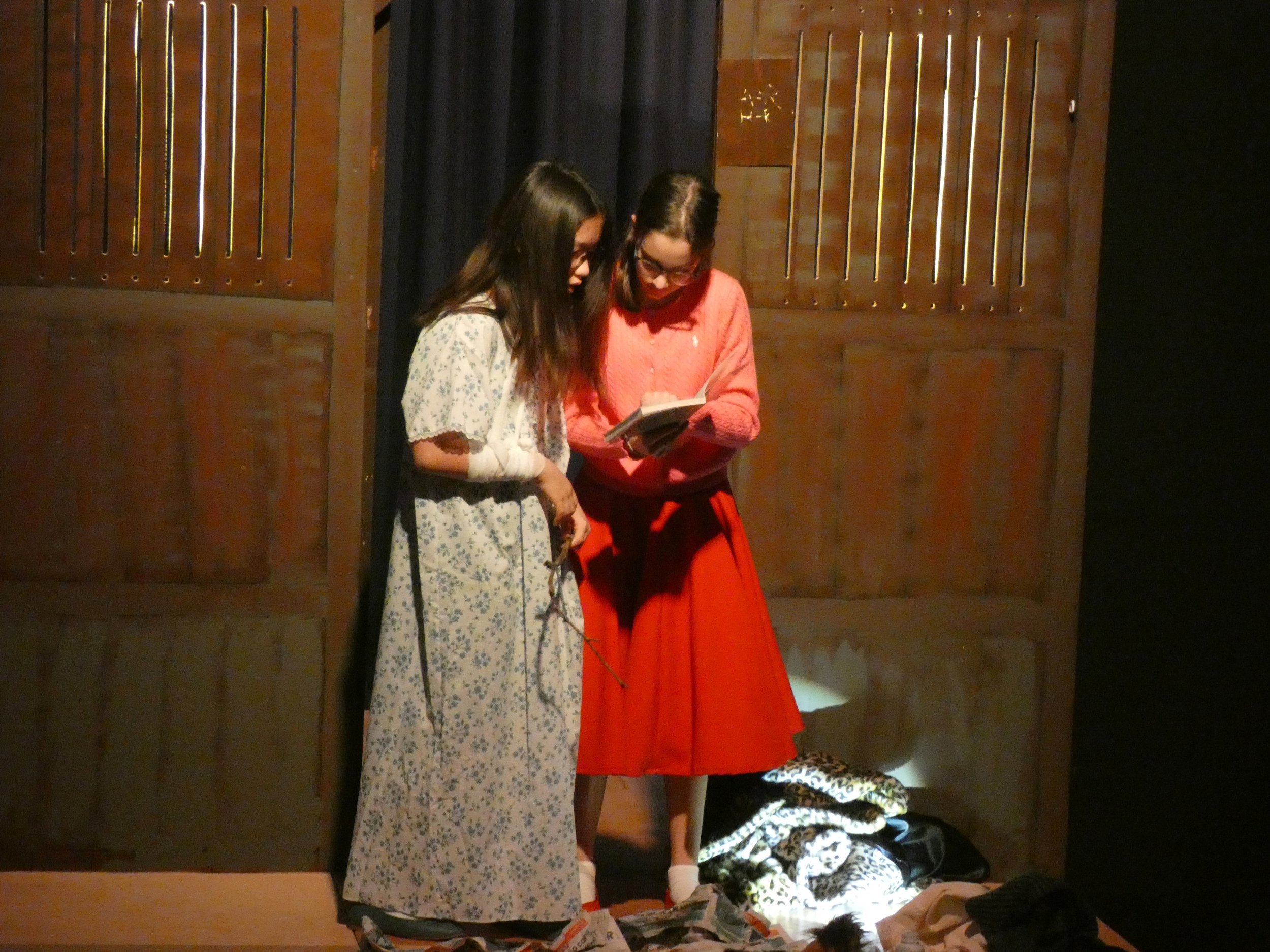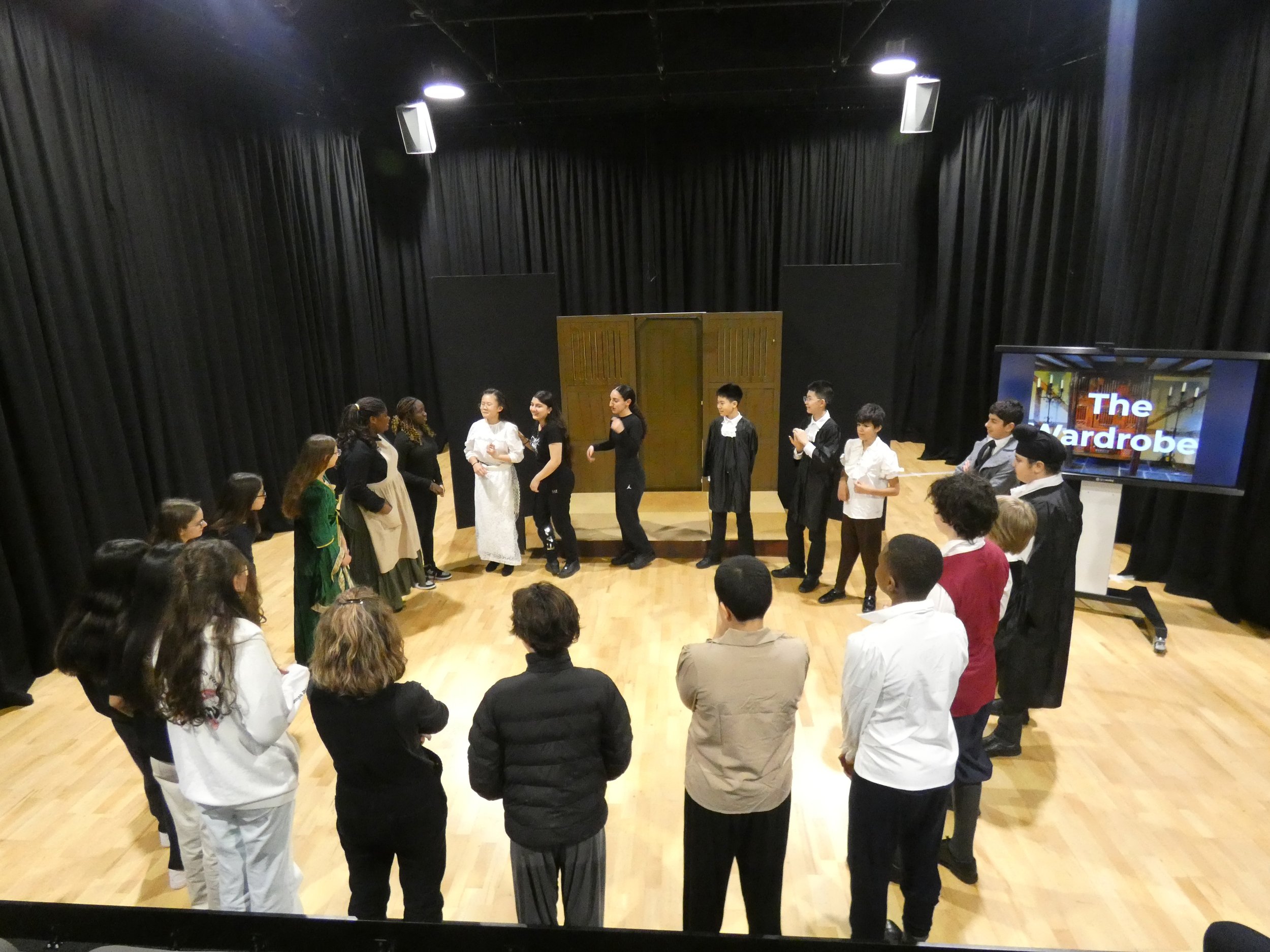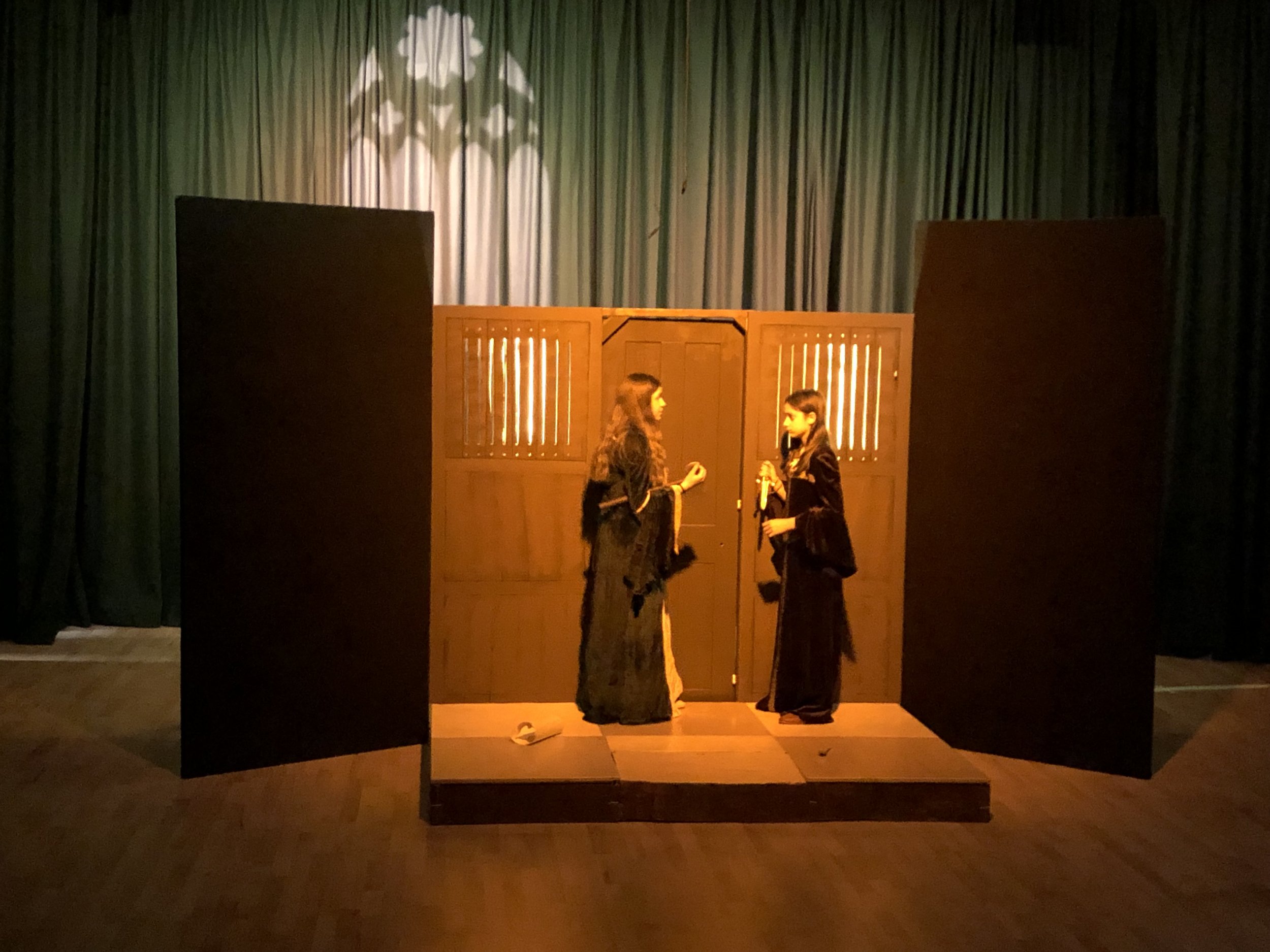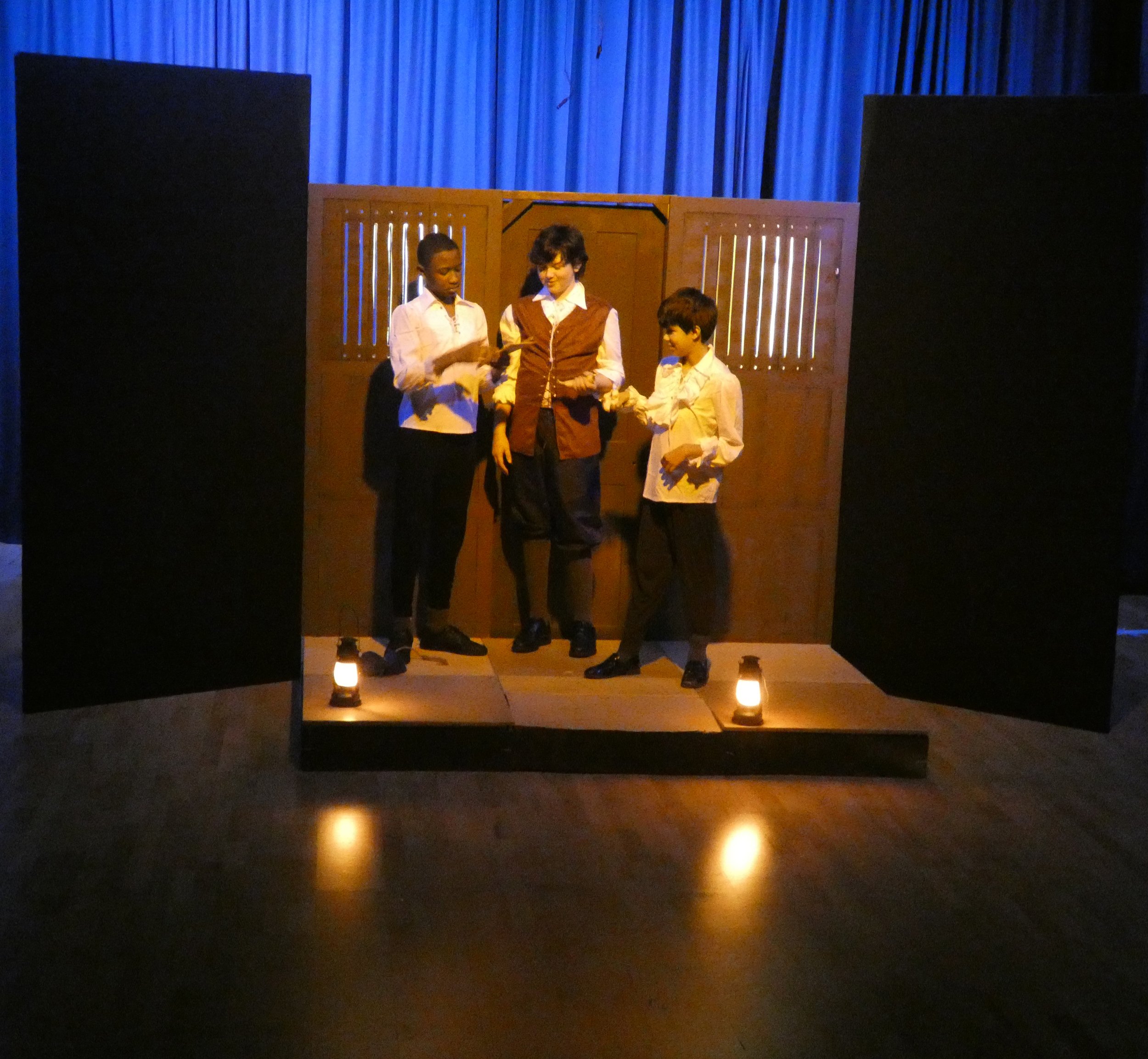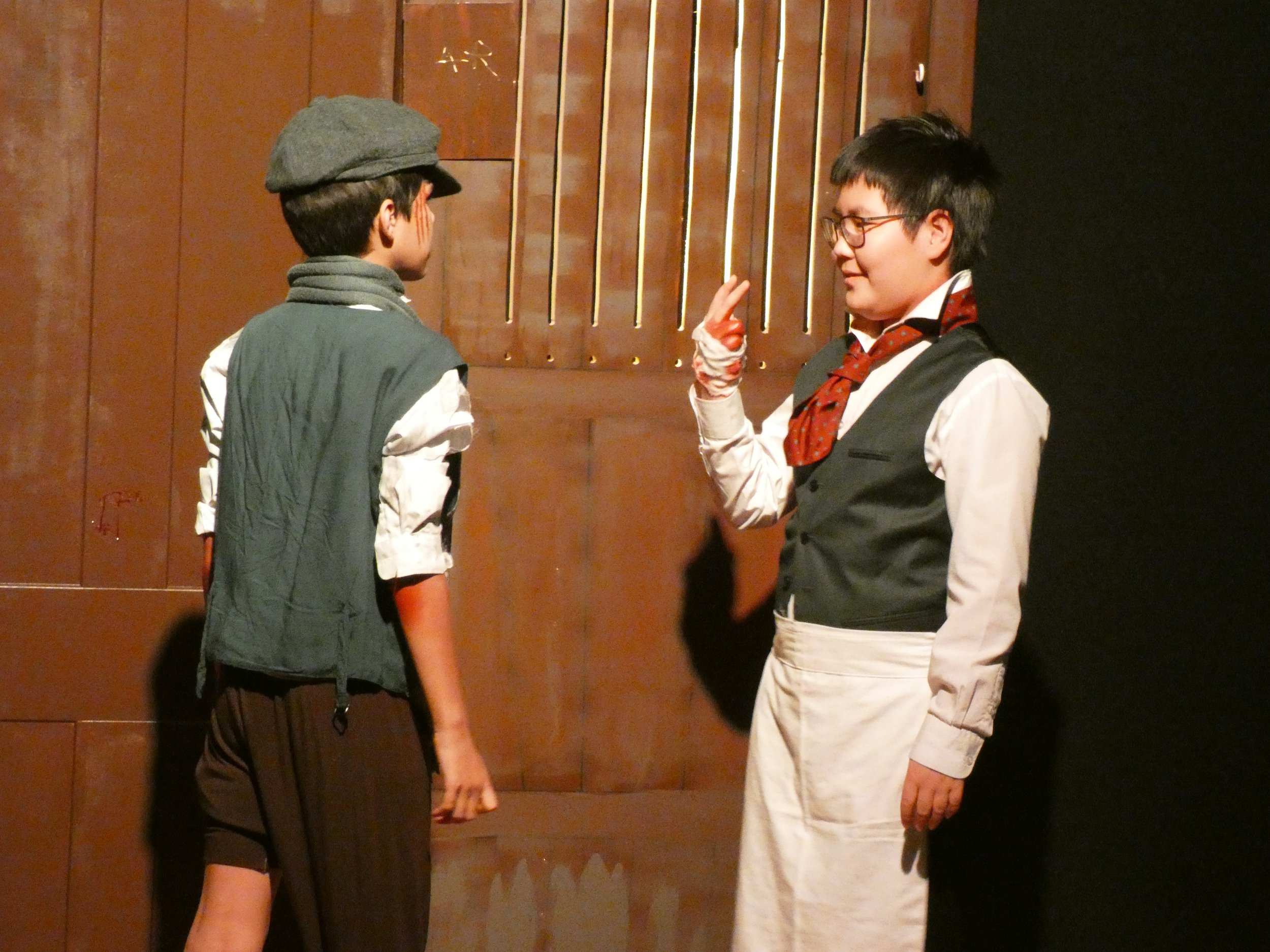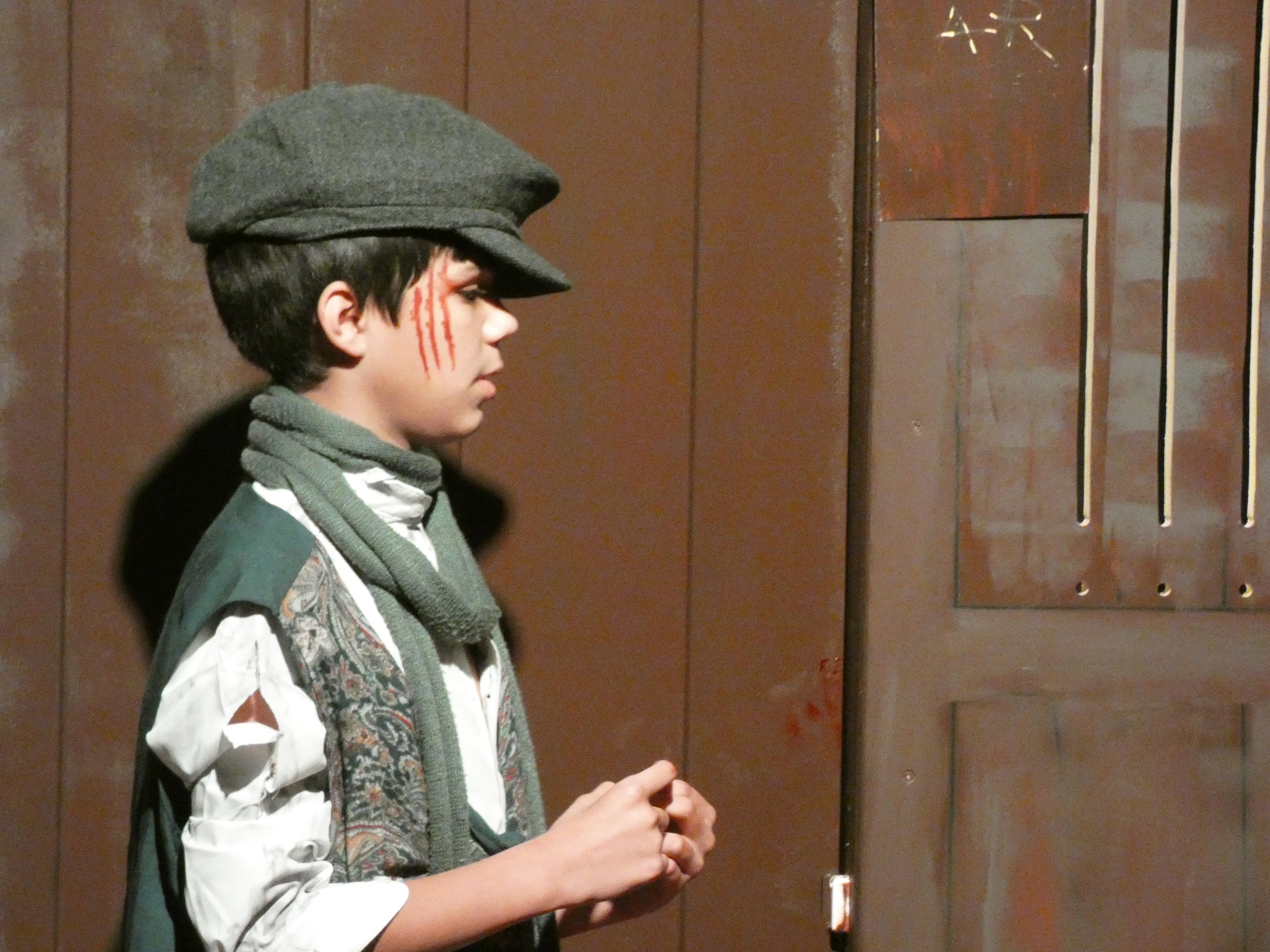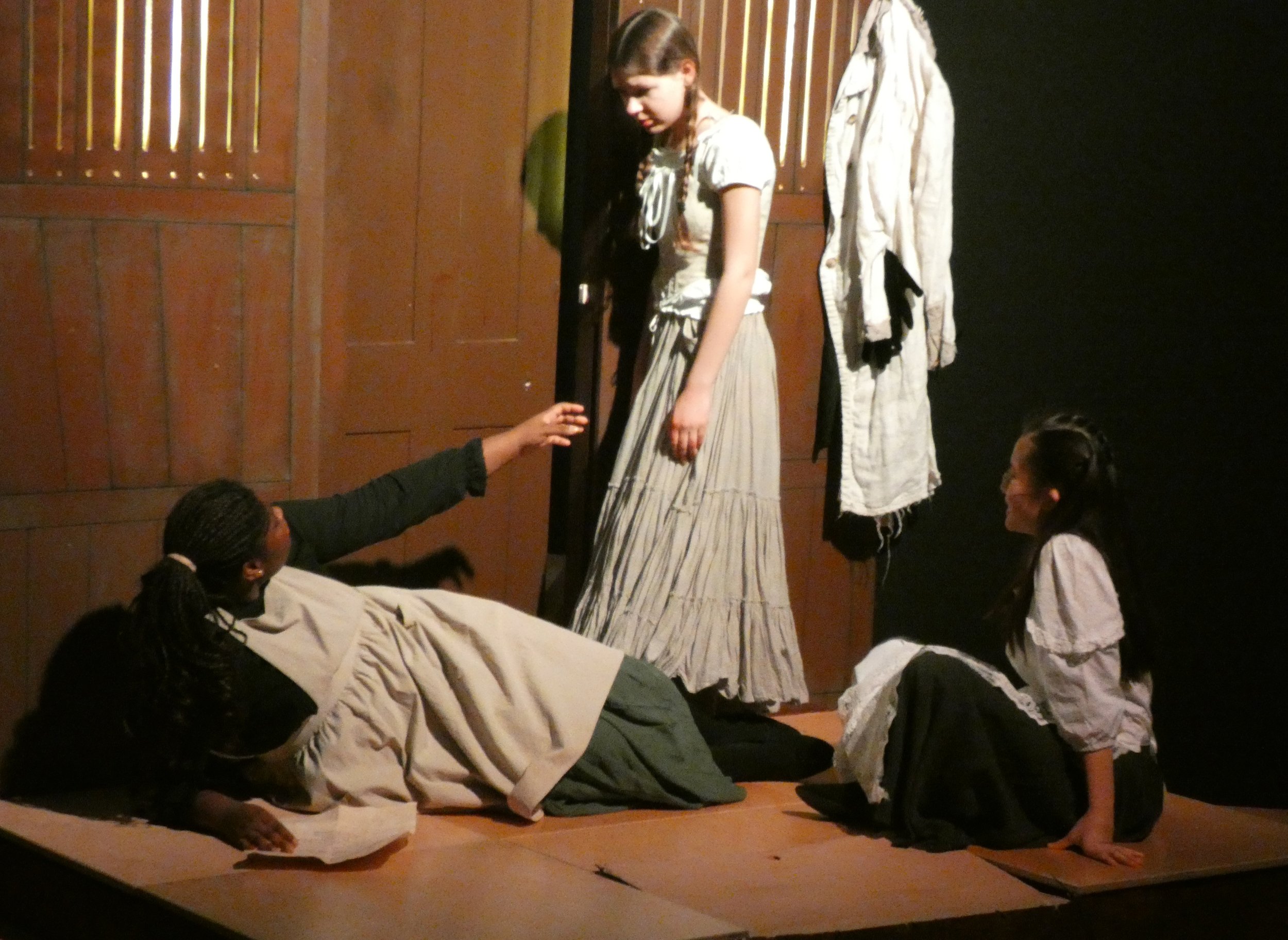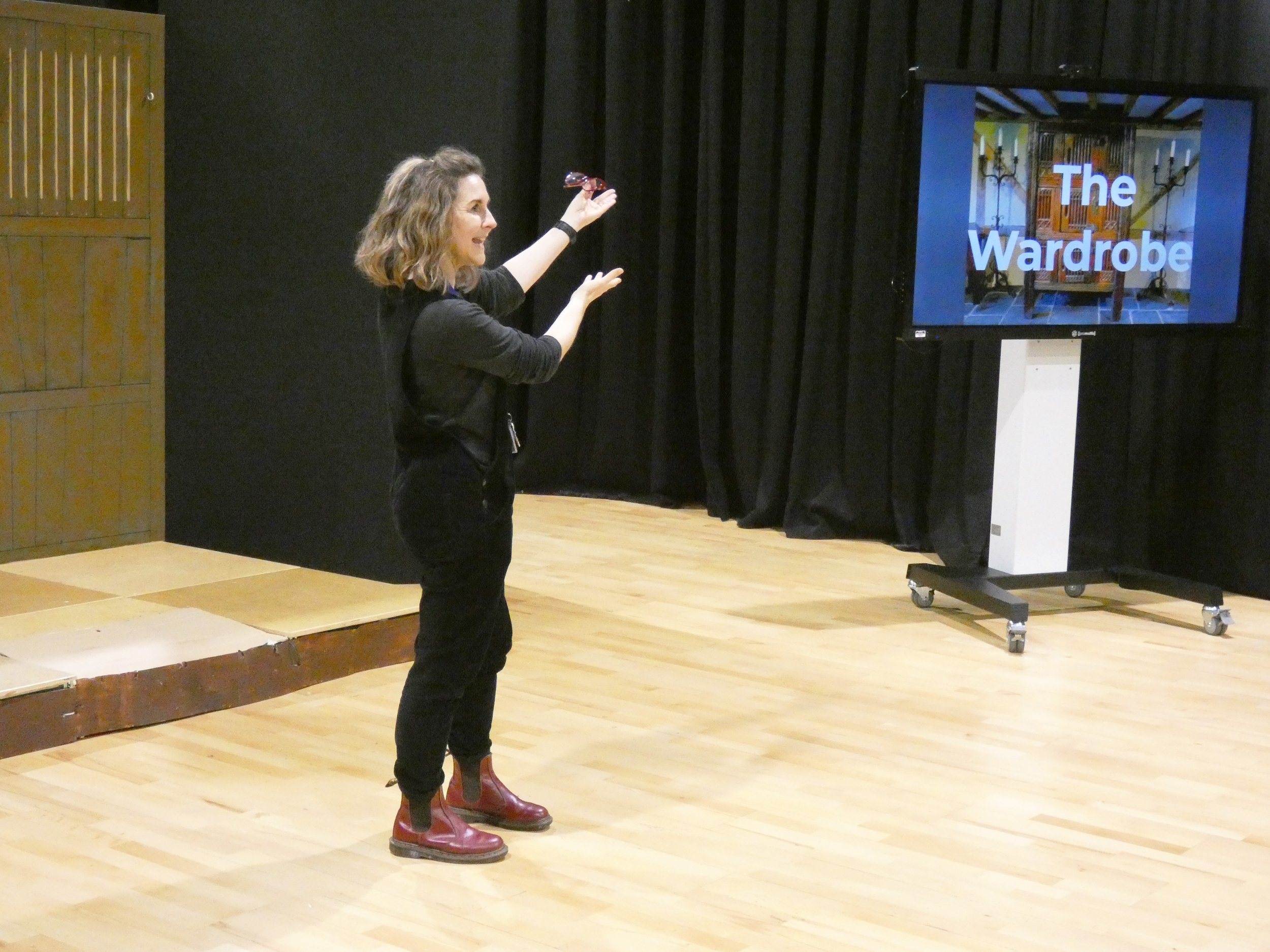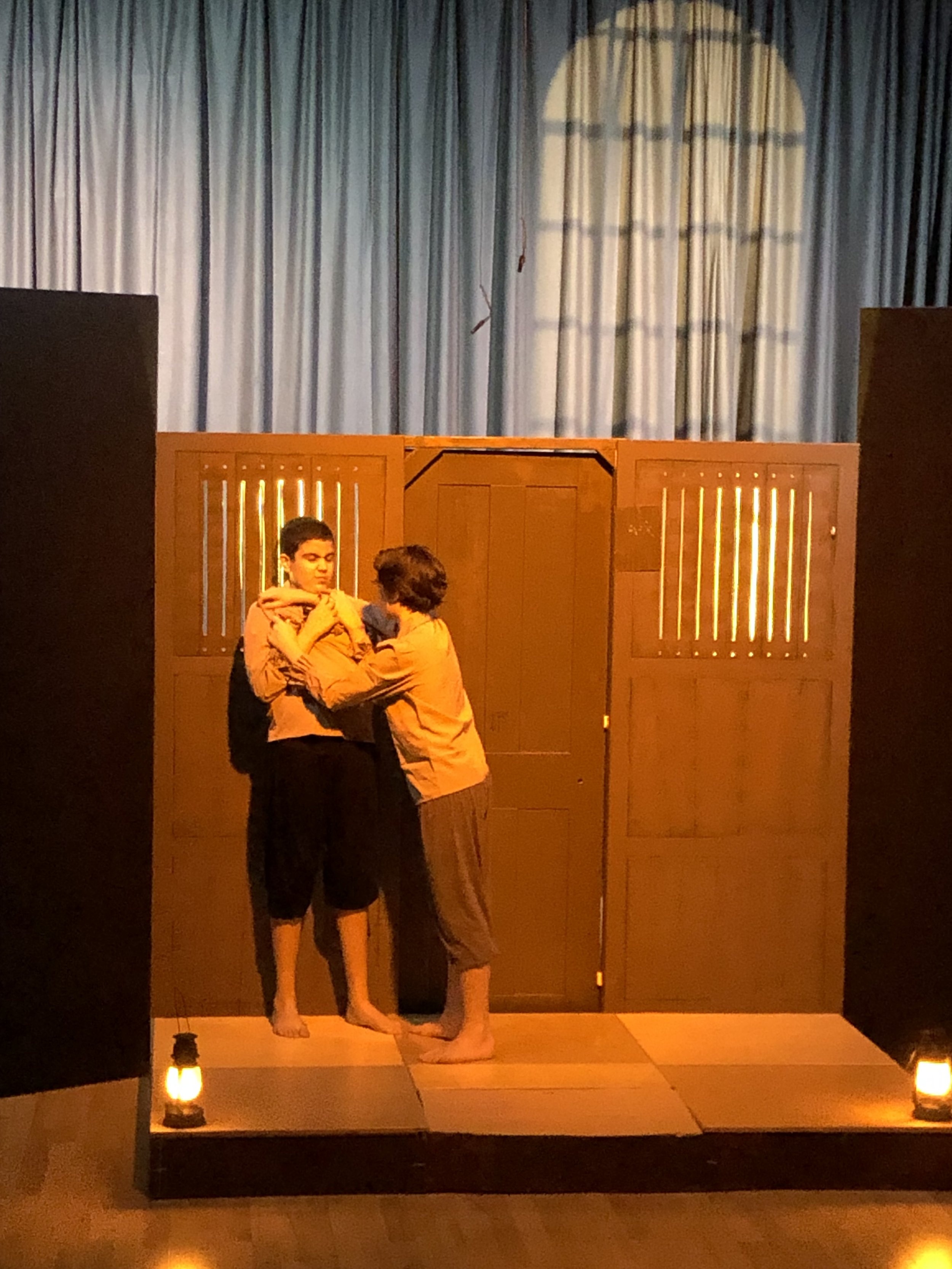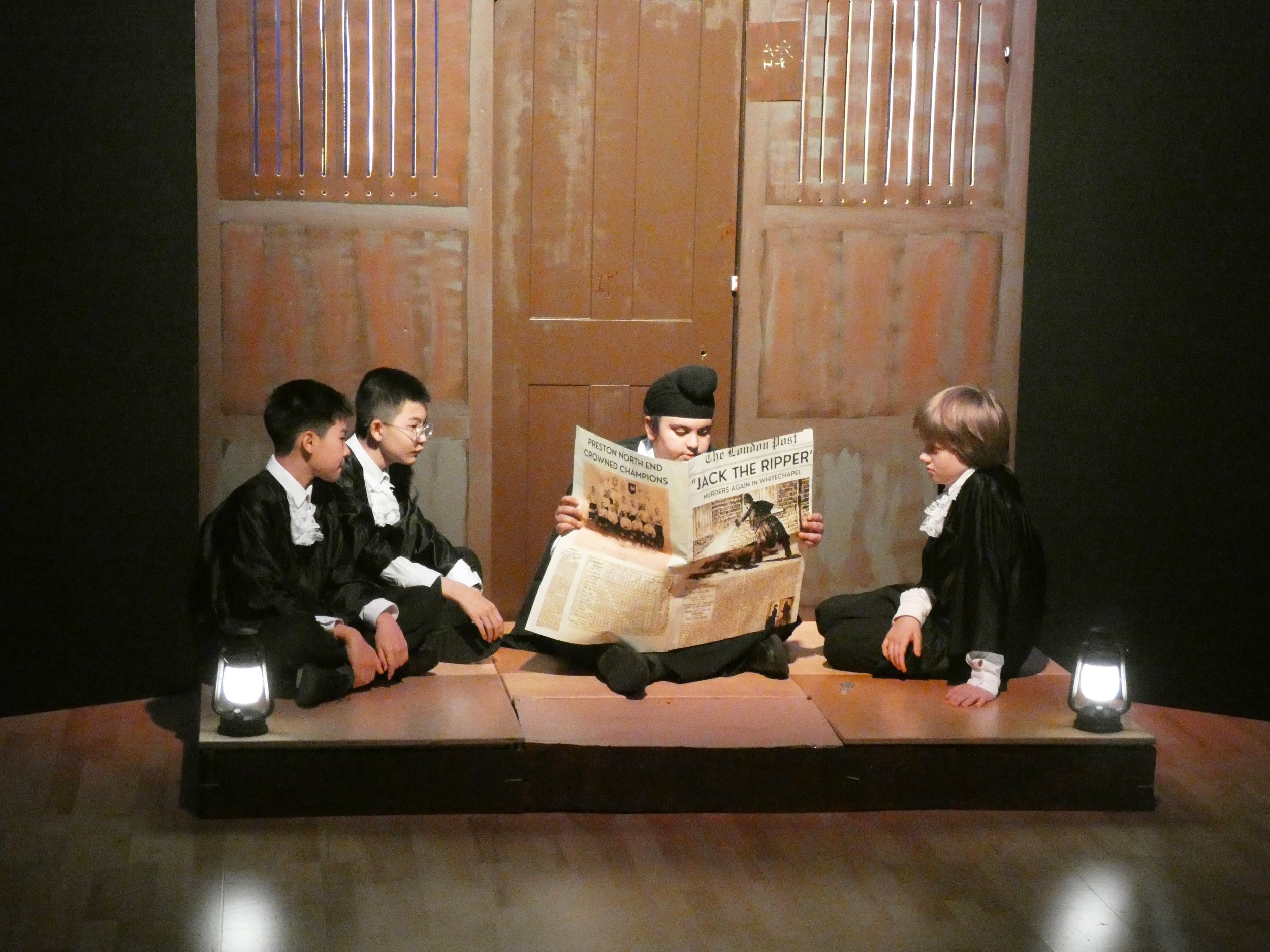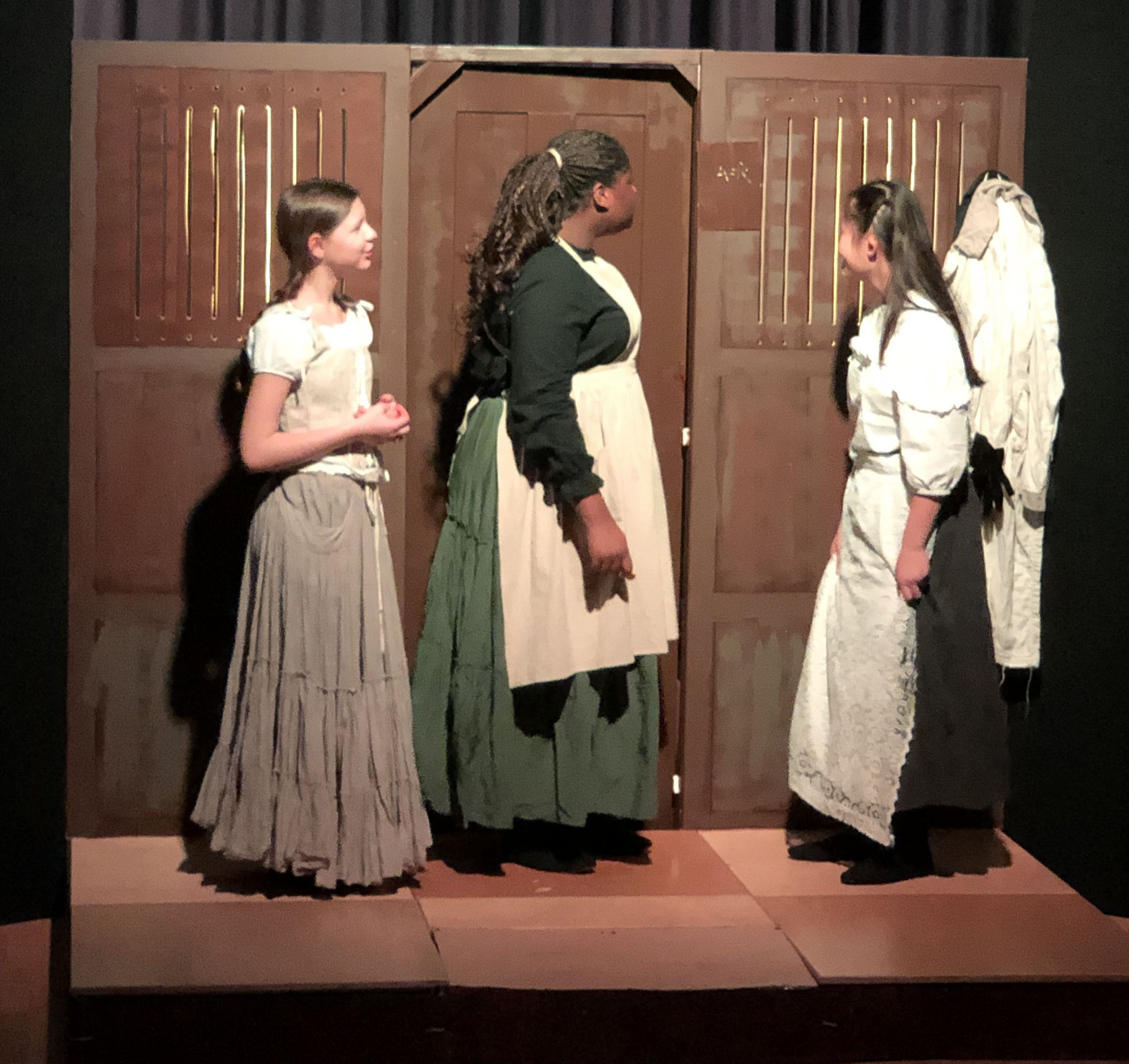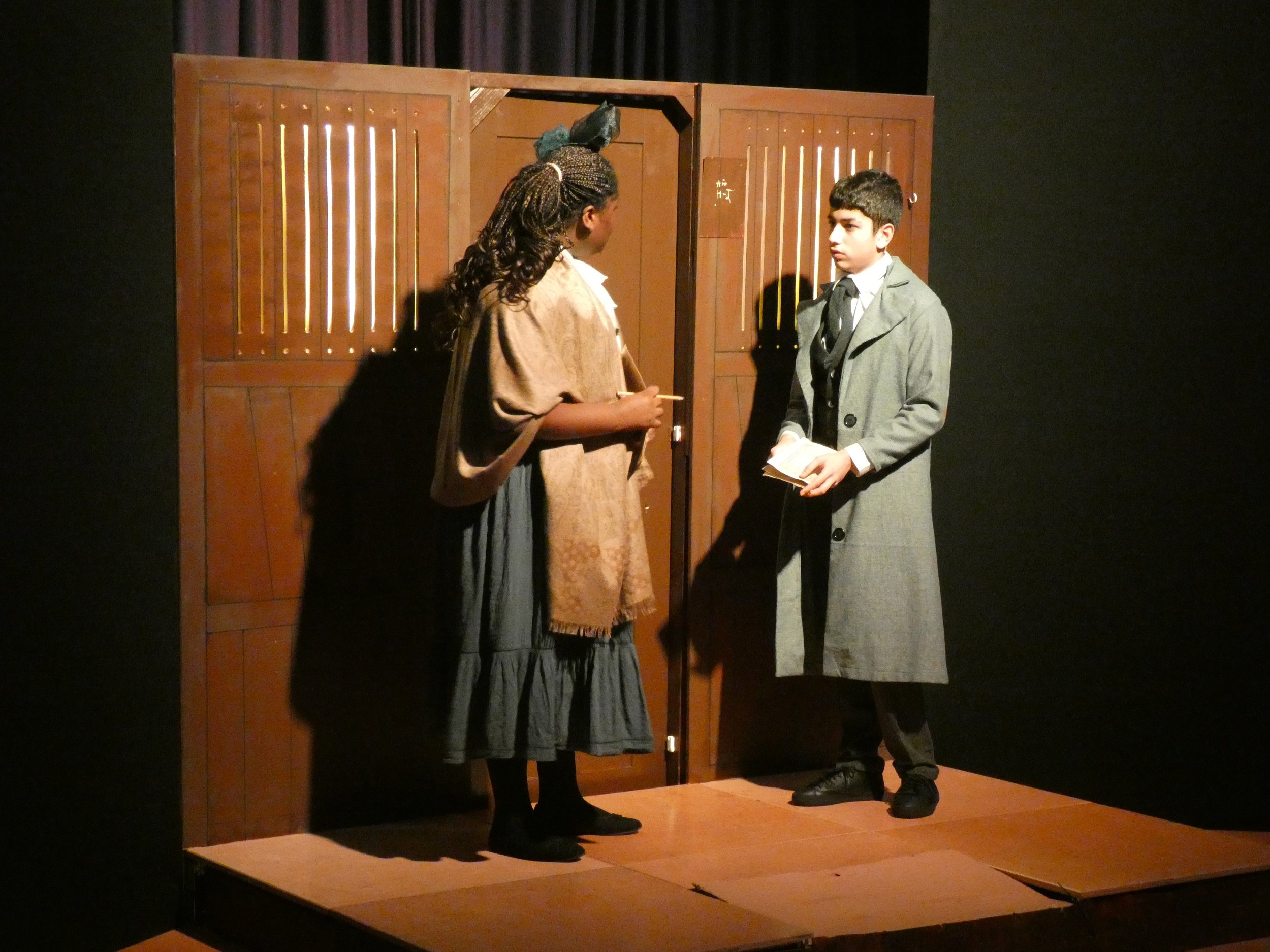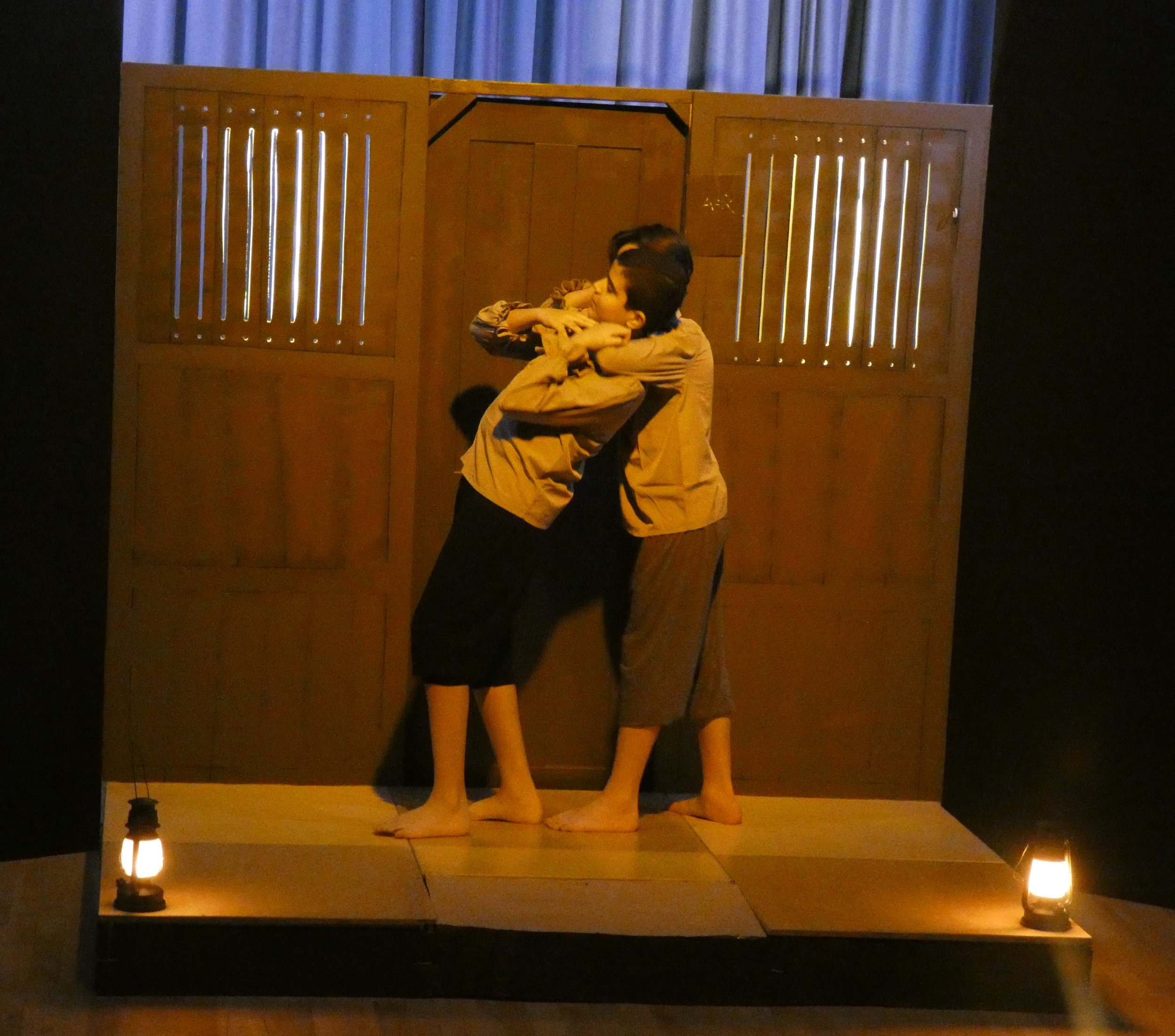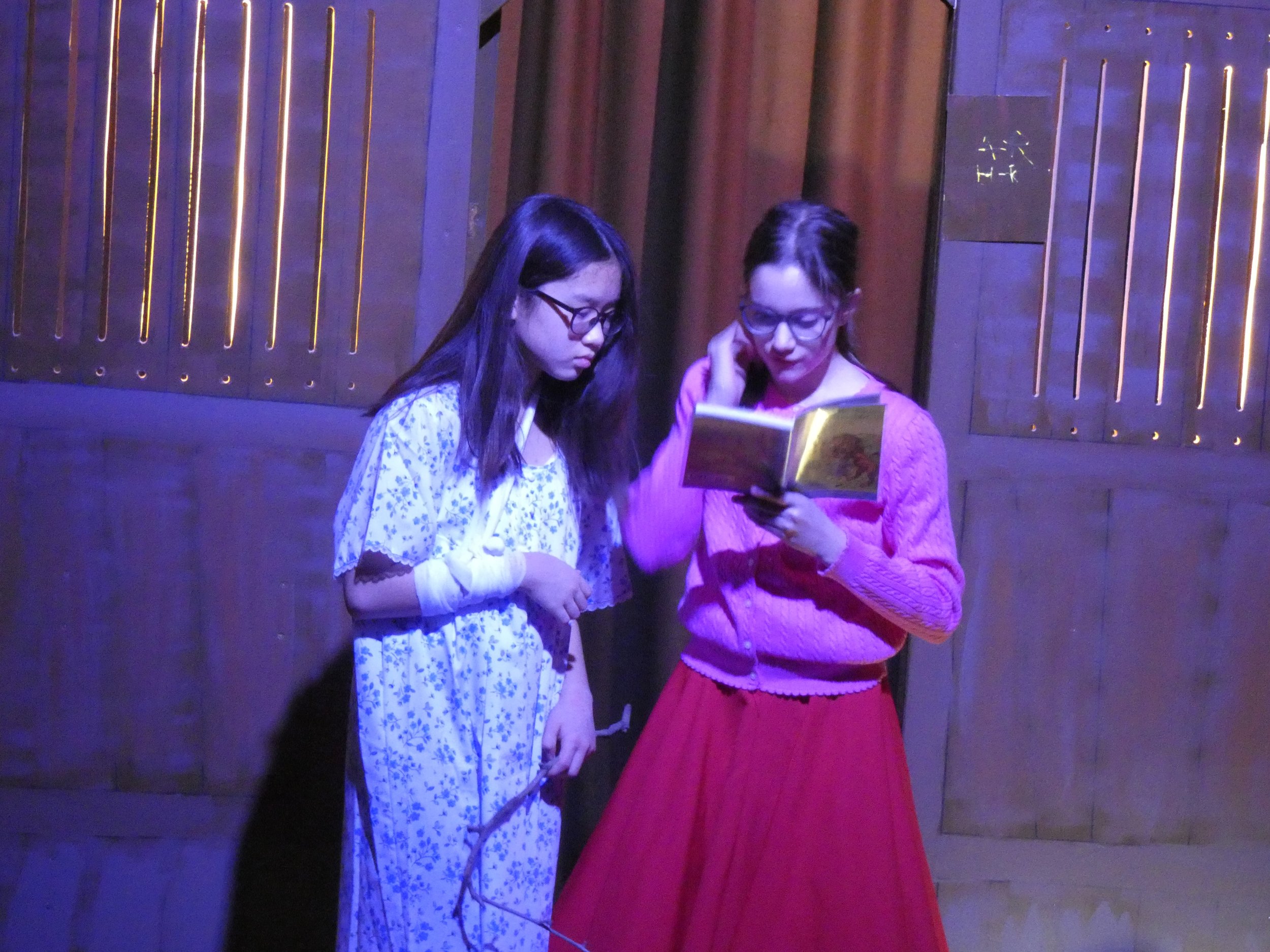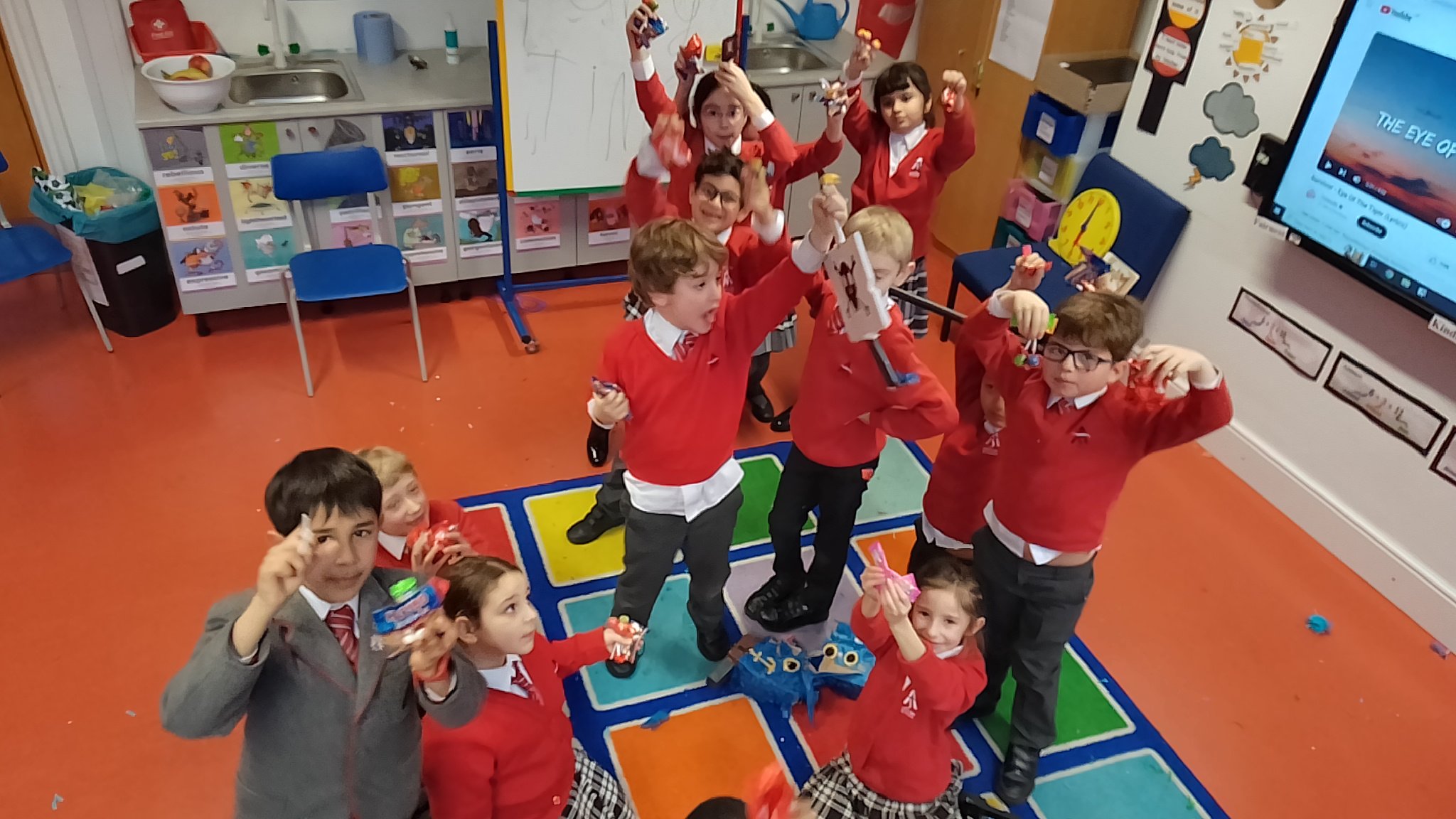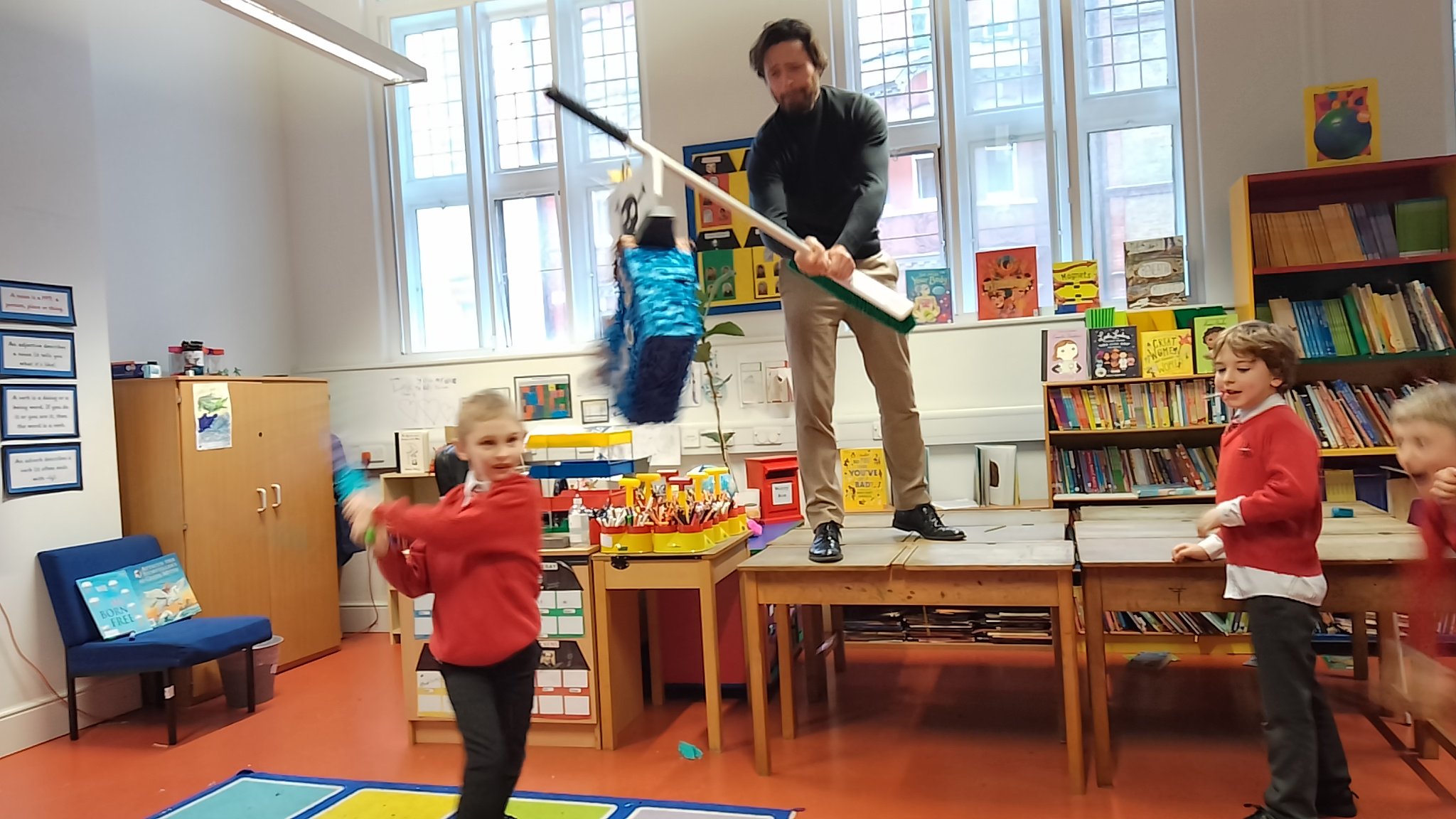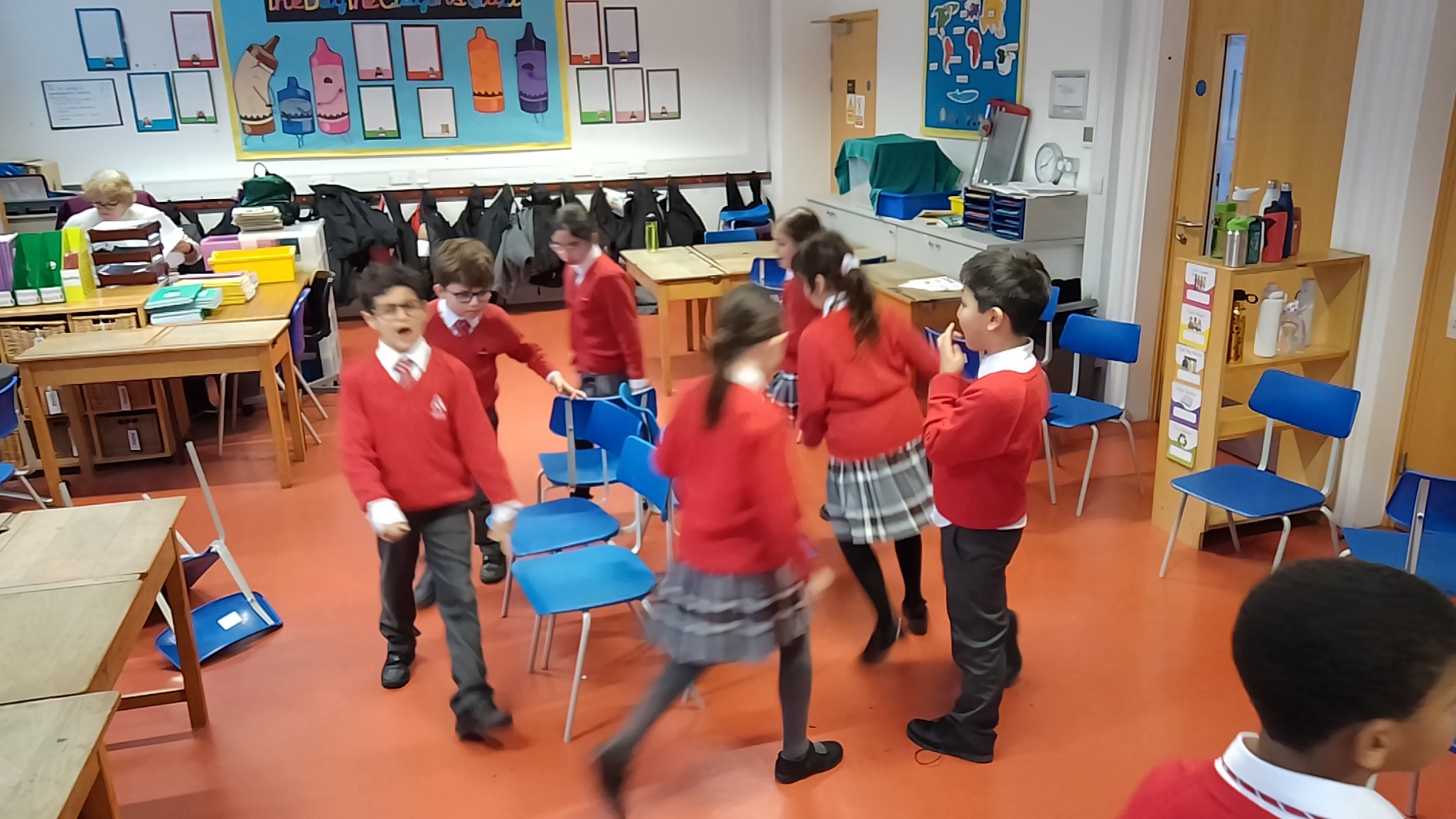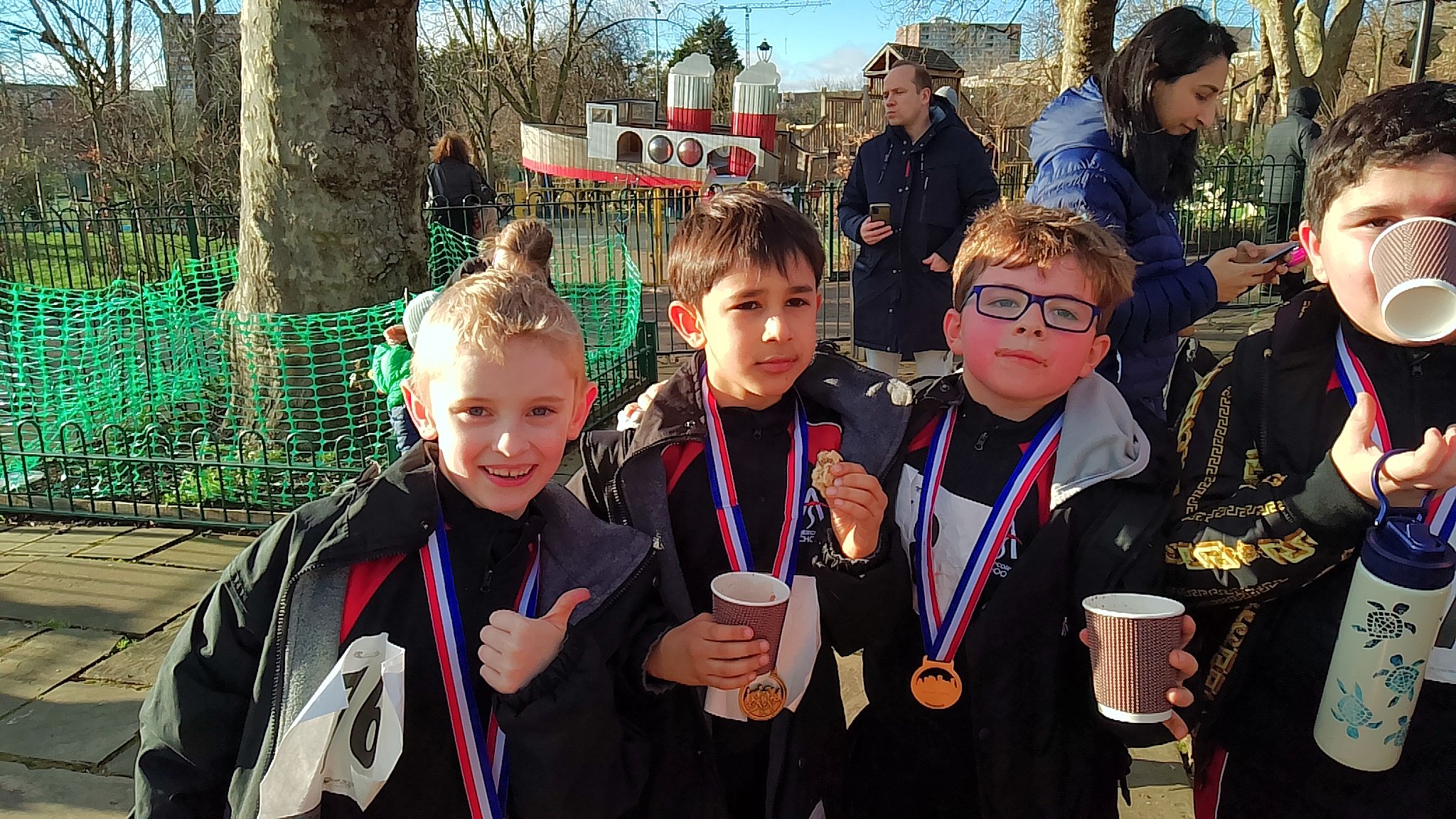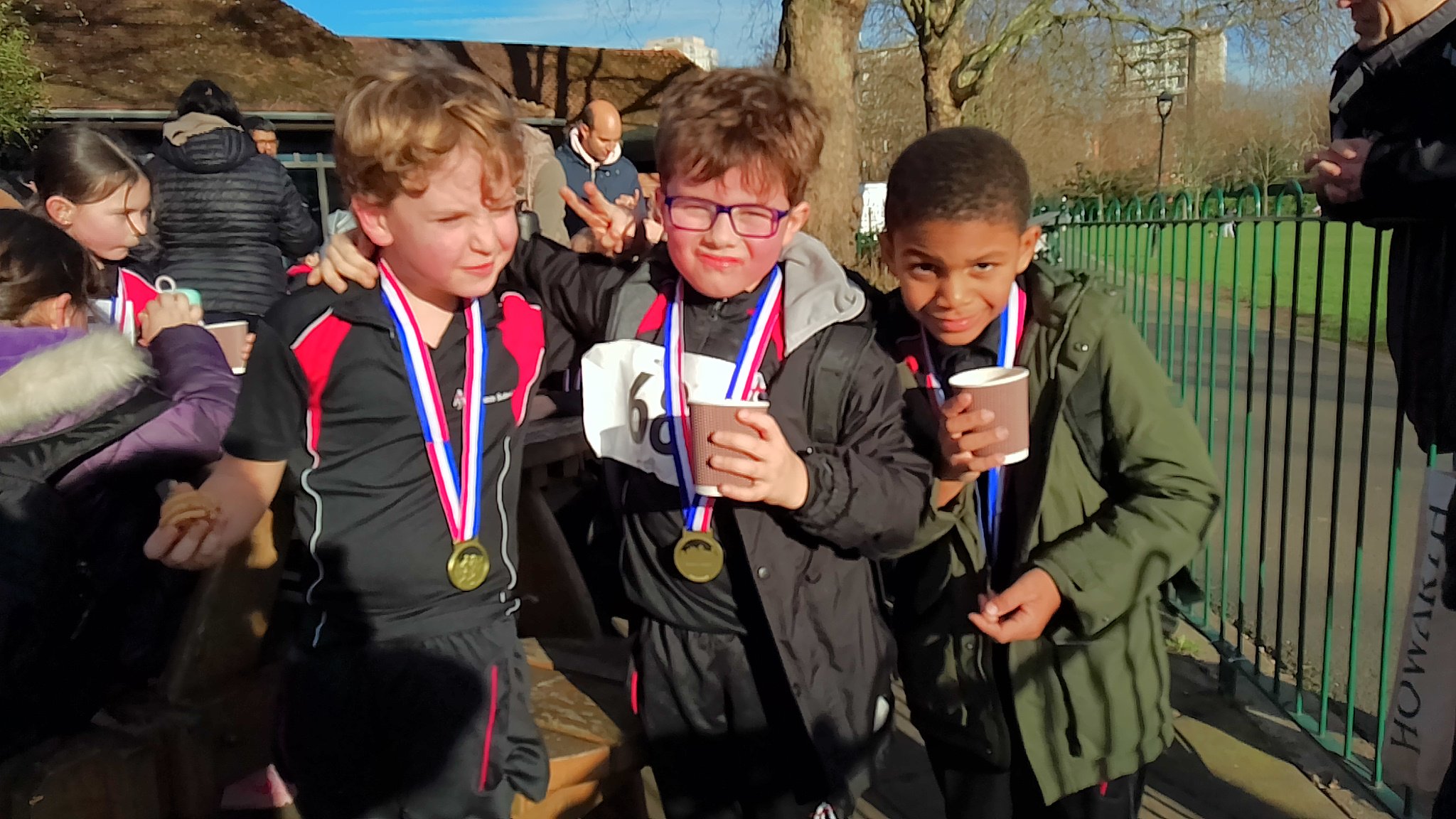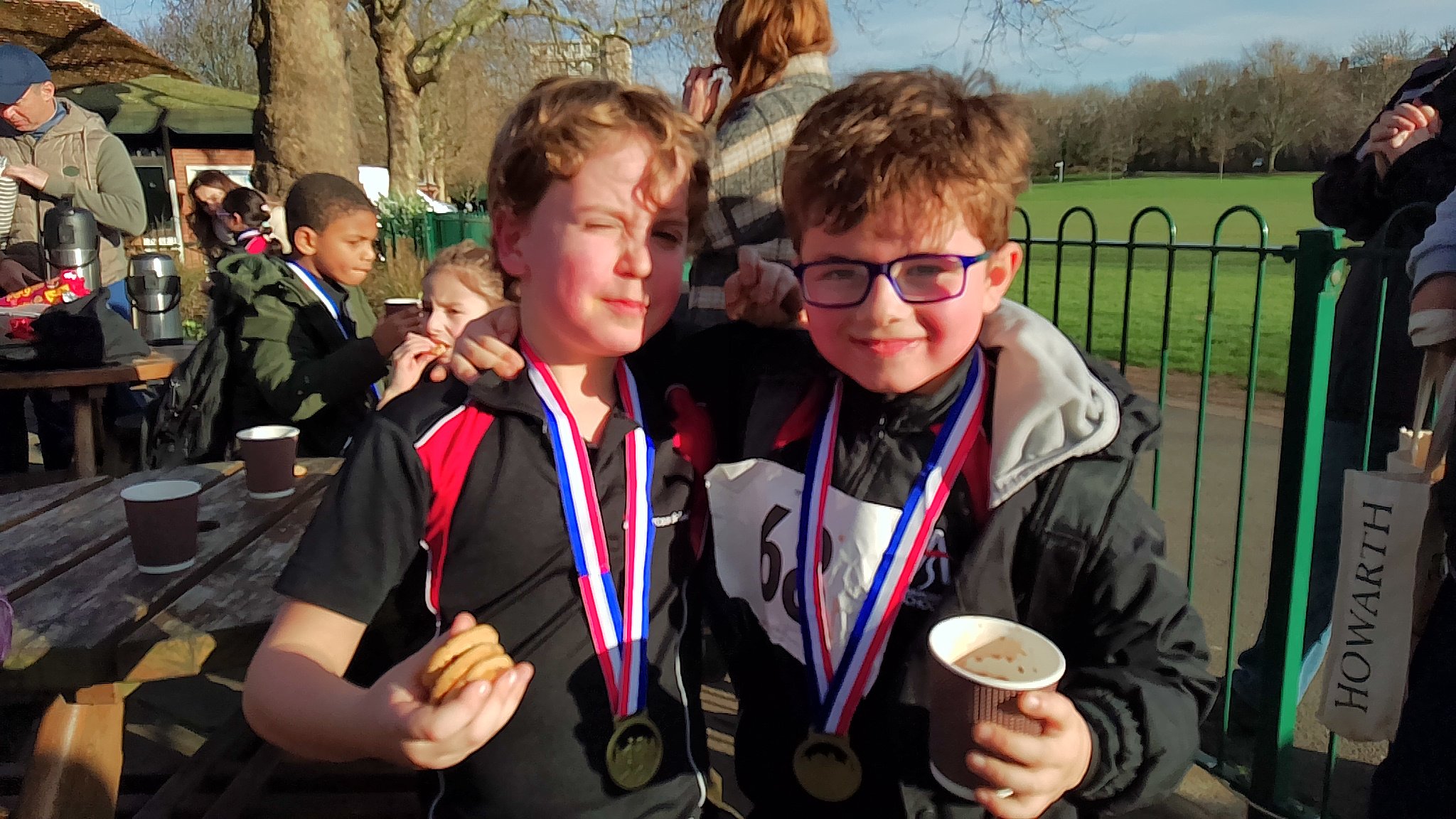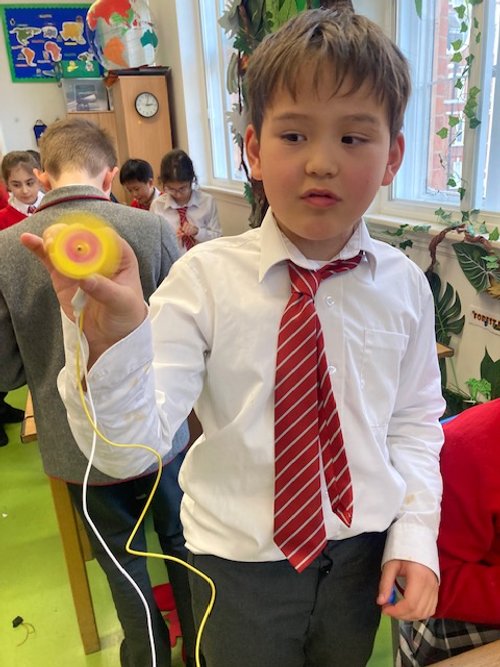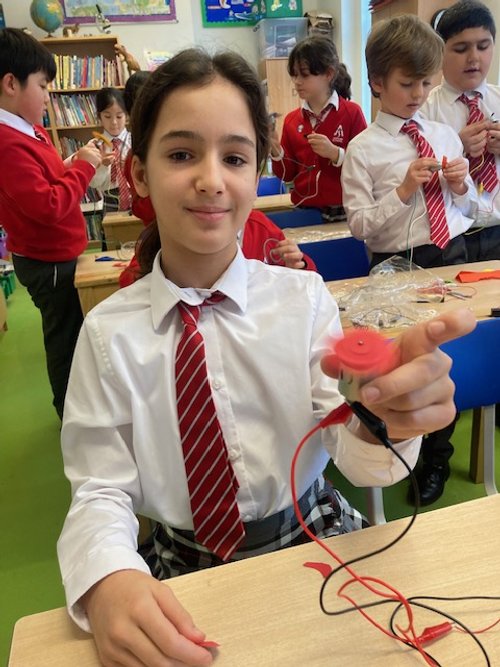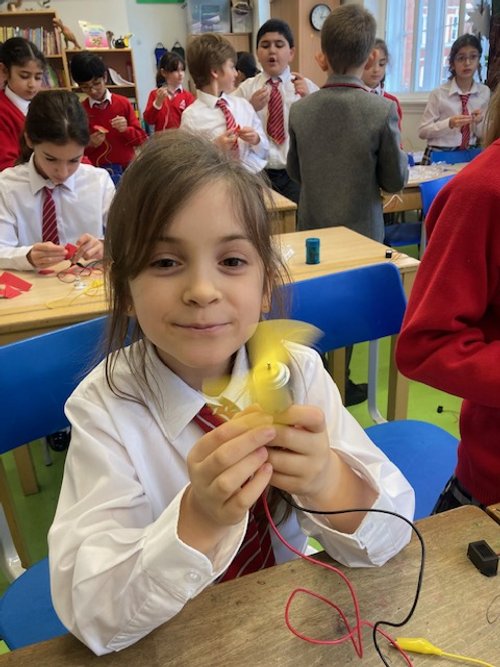Senior School Weekly News
News from Senior School this week: 9th February 2024
Mrs Séguier
Deputy Head of Senior School
First of all, I would like to reiterate my gratitude for all your support with regards to our day of remote learning on Tuesday following unforeseen and unfortunate events on Monday. It has meant that pupils could continue their learning despite not being physically present at School.
Last night we had our first performance of the academic year with our Year 7,8 and 9 students putting on a fantastic show with their own rendition of “The Wardrobe”. A big thank you to Mrs Wrottesley and all the members of staff involved in supporting this wonderful event, and thank you to all the parents and carers that came to watch it and also supported our Senior pupils.
A communication from the office about Parents Evening after half term was sent out yesterday. Please note that these will take place online.
As explained in the communication, you will need to book your appointments using the following link: https://abercorn.schoolcloud.co.uk
Please do not hesitate to contact our IT team on helpdesk@abercornschool.com if you have any issues or need any help with booking your appointments.
I very much look forward to the second half of the Spring Term with our students.
In the meantime, I hope you have a restful and relaxing half term.
Year 3
Firstly, a huge congratulations to all the Year 3 children for their outstanding efforts in last Friday's Inter-House Cross-Country event! It was wonderful to see everyone complete the course with smiles on their faces, and we're especially grateful that nobody fell victim to the treacherous Great Bog of Doom! A big thank you to the APA parents for providing refreshments and fuelling our young athletes.
In our English lessons this week, the children have been delving deeper into the enchanting world of Roald Dahl's BFG, particularly focusing on Sophie's thrilling encounter during the witching hour. Meanwhile, in Maths, our budding mathematicians have been honing their skills in measurement, mastering the art of adding and subtracting measurements while seamlessly converting between millimeters, centimeters, and meters. I continue to be impressed by how adeptly the class handles meter sticks and rulers.
With the cast for our Year 3 show, "Little Red and the Wolf," now revealed, the excitement in 3W has reached new heights! Rehearsals have commenced, and it's inspiring to witness the enthusiasm and dedication with which the children are approaching their roles and songs. Bravo, 3W!
I want to take this opportunity to express my heartfelt gratitude to each and every one of you for the remarkable support and dedication you've shown during the recent brief transition to online learning. The adaptability and enthusiasm displayed by your children truly impressed us all. Your collaboration and commitment have made a significant difference, and I am genuinely thankful for your unwavering support.
As we approach the Half Term break next week, I hope you all have a relaxing and enjoyable time. For those who wish to keep the learning momentum going, optional Half Term tasks will be available on the 3W Google Classroom under the title "Spring Term Half Term Homework." These tasks will offer a variety of options and links for those who are interested.
Wishing you all a fantastic break, and I look forward to seeing you refreshed and ready for more exciting learning adventures soon! Warm regards, Mr Ward
Year 4
What an eventful week it’s been in Year 4! None of us expected to be learning online this week. The children coped well and used their formerly acquired skills navigating the Google Classroom with a good degree of ease.
Back in school, we have continued with our Electricity and Electrical Safety topic. The children used their knowledge of the components of electrical circuits to design different switches. Their knowledge of materials which are classified as insulators or conductors helped them to choose the appropriate materials. They all went on to design working switches which could easily and practically break and close their circuits with components such as buzzers, lamps and motors.
In English, the Year 4s completed non-fiction introductions for their rainforest pop-up books. They used exciting language to engage the reader and were able to summarise the content of their books based on their chapter titles. Using persuasive language they were also able to promote the book’s interest by describing its interactive features as an exciting pop up learning experience!
In Geography, we have continued to explore the rainforest topic. The students have continued work on their bridge mechanism for the pages covering the four forest layers. Many of the students added spring, sliding and hinged mechanisms to the same page-a truly interactive experience!
Have a lovely half term! Kind regards, The Year 4 Team
From the History department - Years 5 to 9
Year 5
In History, Year 5 pupils have been studying the Coats of Arms which were used after the Norman Conquest to identify Knights in battle. They then designed their own Coats of Arms, choosing hereditary symbols such as real and imaginary beasts alongside mottos to represent their own families and values!
"The value of history is, indeed, not scientific but moral: by liberalising the mind, by deepening the sympathies, by fortifying the will, it enables us to control, not society, but ourselves -- a much more important thing; it prepares us to live more humanely in the present and to meet rather than to foretell the future."
This week in the Senior History Department has been wide ranging and varied. We always attempt to develop students’ historical awareness, develop critical thinking skills, appreciate the development and expression of culture and citizenship, assist pupils in questioning the world around them, teach informed decision making and engage with scholarly research and inquiry. Have a read and enjoy finding out more about what happens in a typical week of History at Abercorn Senior School.
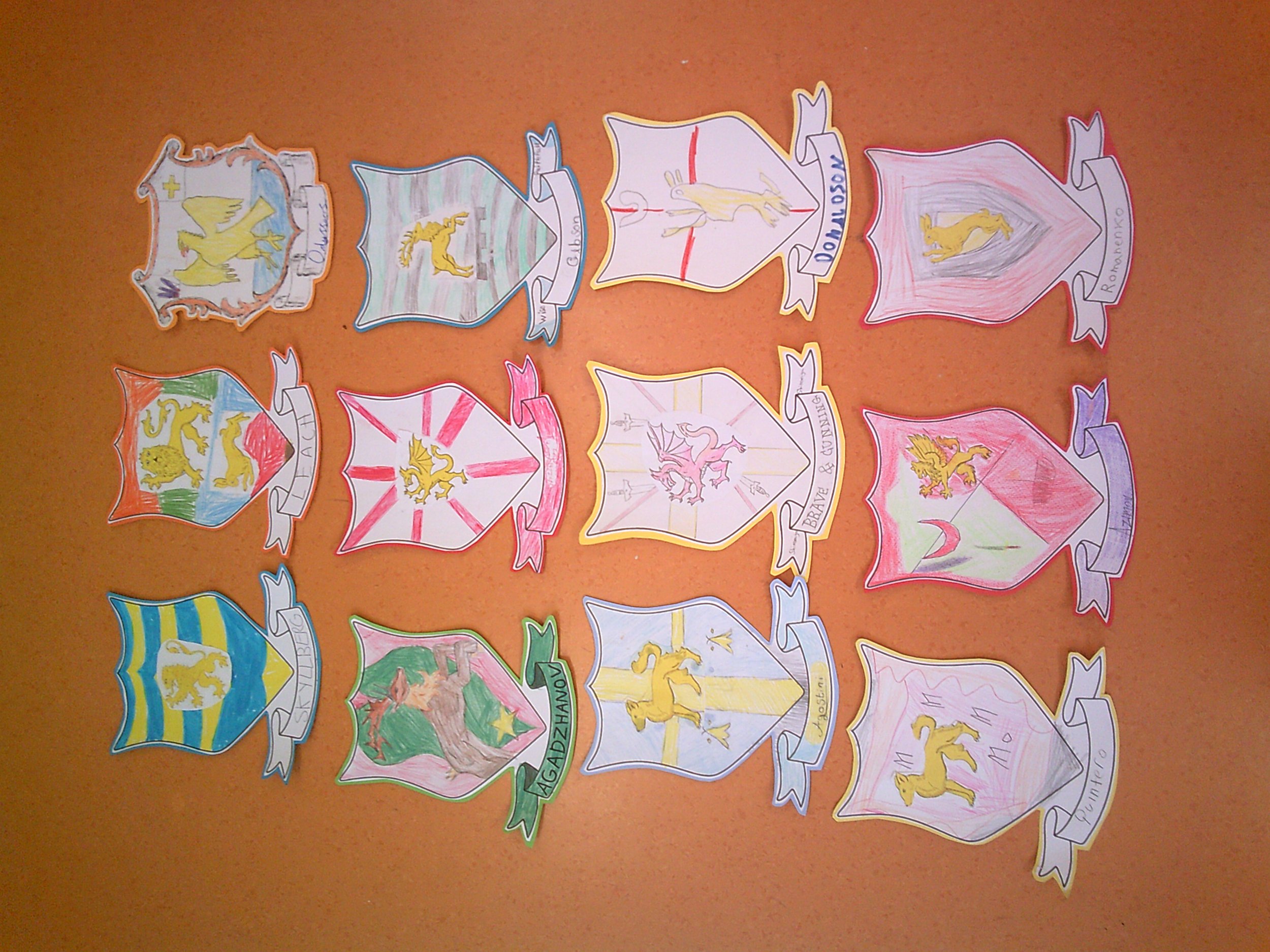
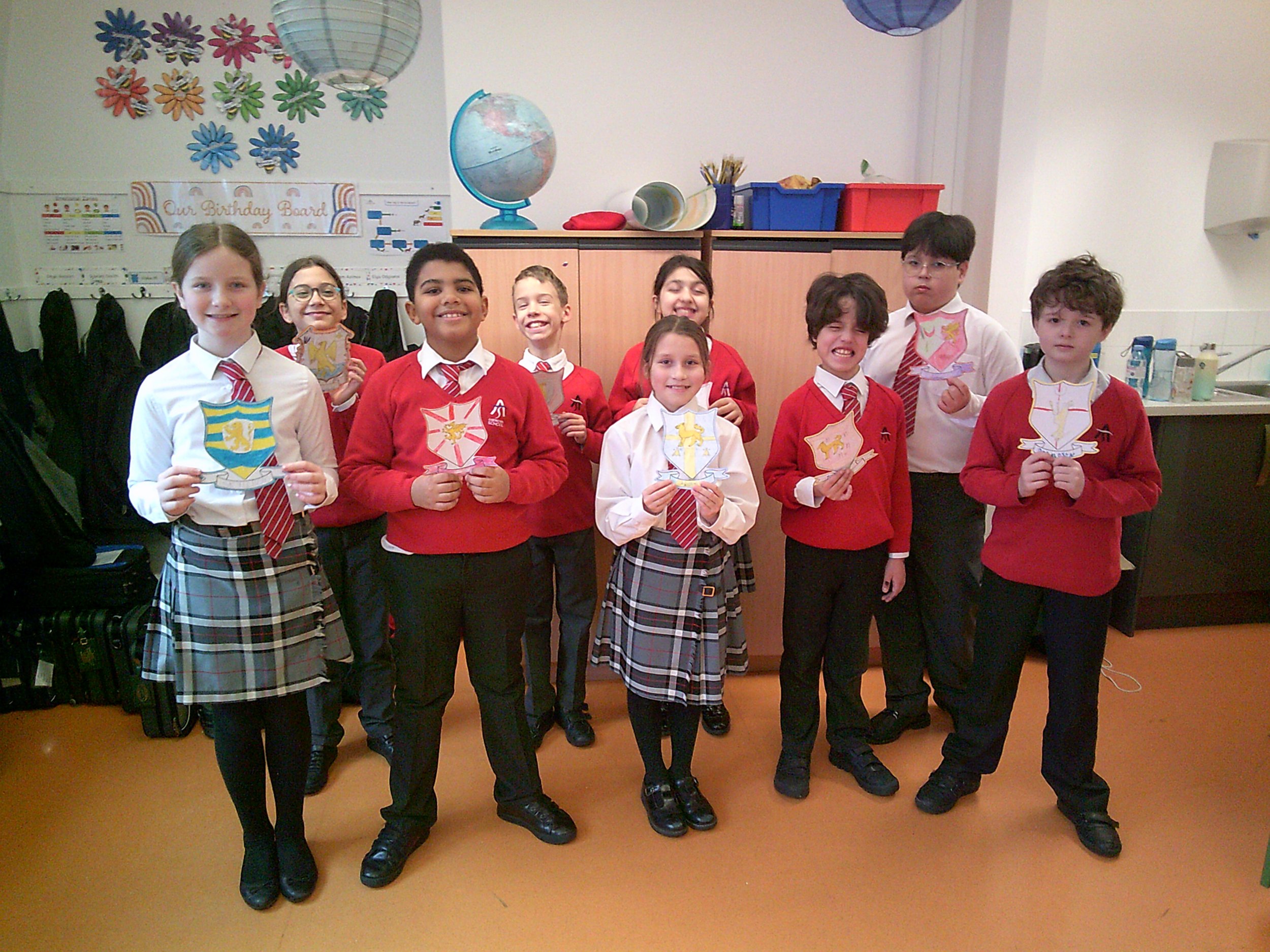
Year 6
This year, Year 6 is studying ‘Big History’, an interdisciplinary approach to history through threshold moments of increasing complexity; from the start of the universe to modern history.
So far we have been cosmologists, astrologists and geologists as we explored the Big Bang, the formation of stars, planets and Earth. We have examined the earliest life on Earth and how it developed in an ever changing atmosphere on Earth. More recently we have turned our eye to evolution, tracking the ever changing, often bizarre world of evolving life on earth. Through different geological eras, pupils have researched and made amazing presentations of some weird and wonderful, now extinct, animals. From the pikaia in the Early Cambrian, to the mimetaster in the Devonian, to the diplocaulus in the Permian, to the heterodontosaurus in the Jurassic and finally the megalodon in the Neogene. Take a look at Josiah’s fabulous research project here. It is always a popular area of the course and not one that often gets covered in traditional History teaching. Alongside building pupils’ encyclopaedic knowledge of extinct animals, we aimed to identify changes in the features of animals, recognise the passages of time and scale, lay the foundation for the evolution of humans and human culture, while also appreciating the role of palaeontology in our understanding of our world. Research, summarisation and presentation were key and Year 6’s tech skills were on full show.
Year 7
Since the start of the year, Year 7 have been exploring History through ‘Revolutions’. Key concepts of causation, significance, change and consequence have been explored in relation to the Industrial Revolution of the 18th and 19th centuries and now the Digital Revolution of the 20th and 21st.
We began this term by reflecting on key inventions of the Digital Revolution. This week Year 7 decided that, as they are part of the Digital Revolution age, they were in a good position to select an invention that they thought was the most significant. We chose the internet and pupils created visual timelines of the history of the internet. Take a look at Hannah’s outstanding timeline here. We noted changes in its use, from the very first military applications to the all-encompassing ways we use the internet now: food, shopping, travel, information, communication, even refrigeration. Next half-term, we continue to look at the Digital Revolution, however this time from the perspective of cause and affect - how and why has humanity entered this age and what are the effects for different demographics within a globalised world?
Year 8
Year 8 have been studying the progression of World War I this year.
This week, we have been examining the symbolism and representation in artwork of the war. We examined three pieces: John Nash, 'Over The Top' (1917), Percy Wyndham Lewis, ‘A Battery Shelled’ (1919) and John Singer Sargent ‘Gassed’, (1919). Pupils were tasked with identifying features of the artworks and explaining what they represented and what we think the artist was trying to convey about the experiences of soldiers or emotions of war. In ‘Over the Top’, pupils identified the soldiers’ hunched backs and hopeless looking figures as signs of war-weariness, shell shock and of the ‘unwilling’ soldier who was conscripted against their will. Pupils showed some excellent deep thinking - stating that the dull colours of ‘Battery Shelled’ represented the emotionless feelings of war and the removal of feeling and joy that was left with soldiers recovering after the war and civilians who have lived or died through it. They also thought the soldiers resembled machinery, shells, insects or wood - emotionless, expendable and inhumane - could this represent the use of soldiers in a war where almost 10 million military servicemen died. Have a look at these artworks here and see what you think they represent and what reflections you can make.
Year 9
Year 9 continued to explore the reign of Henry VIII. Far more than a man who had six wives and a large rotund figure - he was a man who changed the religious and political landscape of England. The break from Rome and the English Reformation of the 16th century offers lots of opportunities for historical scholarship.
We have compared primary sources about Henry VIII to create personality and character profiles - pupils were left surprised to find that Henry, in his younger years, was far more ‘Renaissance Man’ than ‘Reformation Man’. We then were introduced to Martin Luther and the challenges to the Catholic Church in Europe and finally examined Henry’s problems and opportunities to satisfy his needs for a male heir, political dominance, religious authority, economic security and romantic expression. His creation of the Church of England in 1533 has been a central event to explain causation, change and significance - key concepts that Year 9 are learning to approach in their writing. There has been some excellent scholarship on show - the department loves watching young historians developing their skills and curiosities.
